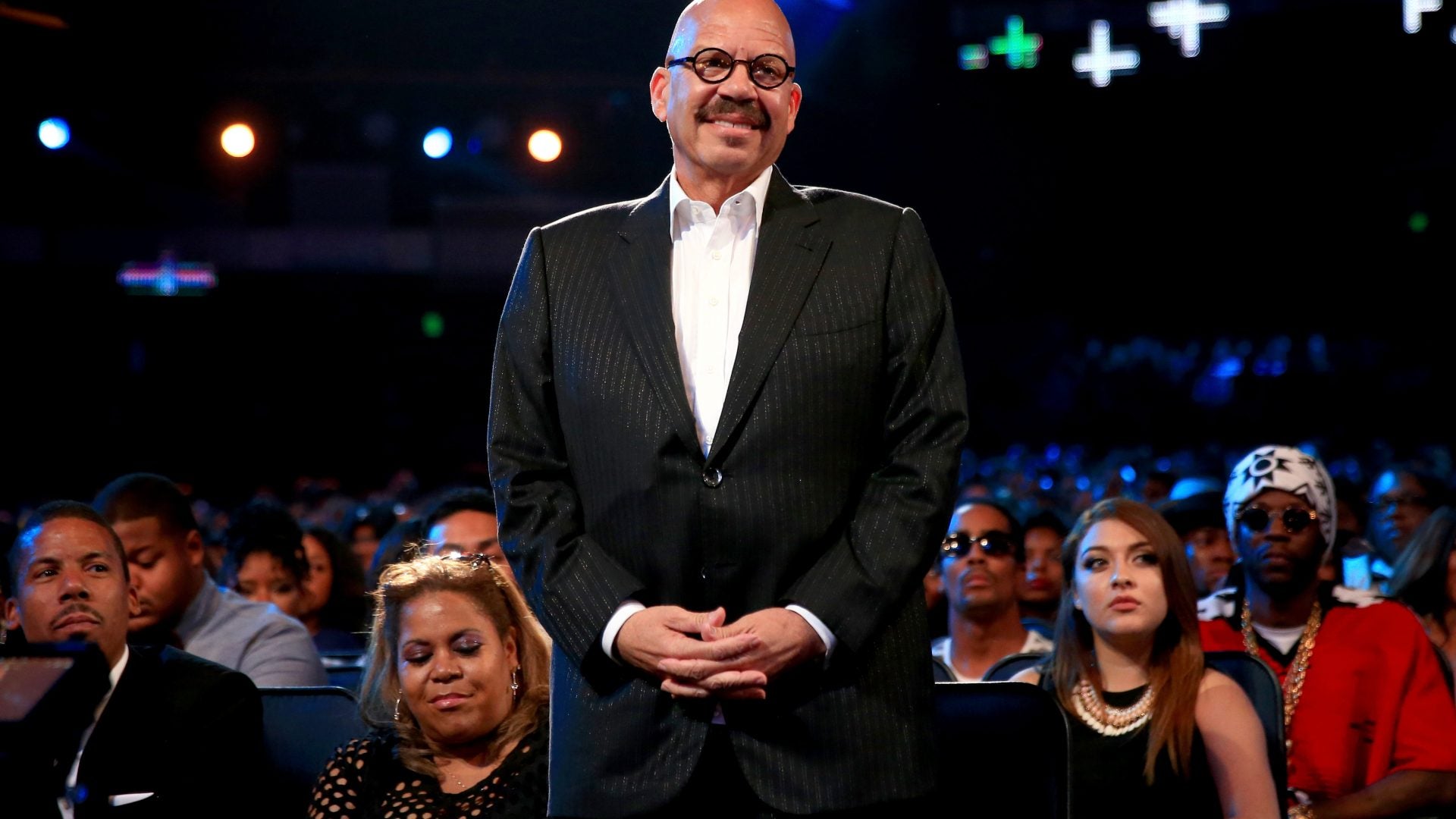
Friday was the last time radio listeners heard this little ditty live, “Oh, oh, oh/It’s the Tom Joyner Morning Show!”
Tom Joyner said goodbye after 25 years helming his wildly popular Tom Joyner Morning Show, syndicated in more than 100 markets across the United States and boasting nearly 8 million listeners.
The Fly Jock, as he’s known, celebrated his final morning in style with plenty of surprise guests calling in to congratulate him on a job well done—bringing us the news, celebrities and lots of laughs every weekday.
Tyler Perry and Spike Lee called in on Joyner’s final day while celebrities, including Mary J. Blige, Kevin Hart, Chris Tucker, D.L. Hughley and even past contributor Huggy Lowdown called in throughout the week to give Joyner his flowers.
By the 80s, with Joyner on the airwaves in Dallas on 104.5 KKDA-FM and in Chicago on the city’s infamous Black radio station 107.5 WGCI-FM in the afternoons, it earned him the nickname as The Fly Jock.
“Our thing has always been to empower people, but to empower we have to first entertain If I have you laughing, I have you listening,” Joyner said recently on CBS This Morning.
Directly speaking to Black people across the nation, Joyner has used his large platform to raise more than $60 million for Historically Black Colleges and Universities and also register 250,000 Black people to vote. Joyner said to “super serve” the Black community was intentional.
“Don’t worry about crossover. Just super serve, super serve, super serve,” the Tuskegee, Alabama native said on CBS. “Anything that affects African Americans, that’s what you do. Just worry about connecting to people and their needs.”
Joyner admitted that part of the reason why he’s retiring is because of financial cutbacks in his salary. At this peak, the radio jockey had a $14 million salary.
“But it got to a point where they would [say,] ‘Alright, we’re gonna cut your salary in half.’ ‘Okay.’ ‘And then in half.’ ‘Okay.’ And then in half two years ago,” Joyner explained. “Because my salary was based on my results, and not only was I losing affiliates, but [the] radio industry as a whole was losing traction.”
Joyner said if his salary hadn’t slipped, he might’ve delayed retirement.







“Heck yeah. Shoot…my goal was to die on the radio. Have my funeral on the radio,” he quipped.






